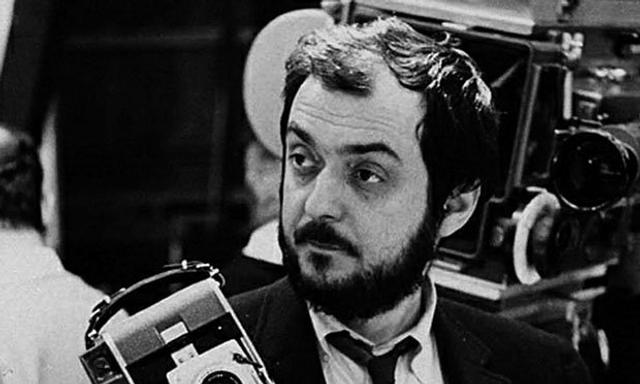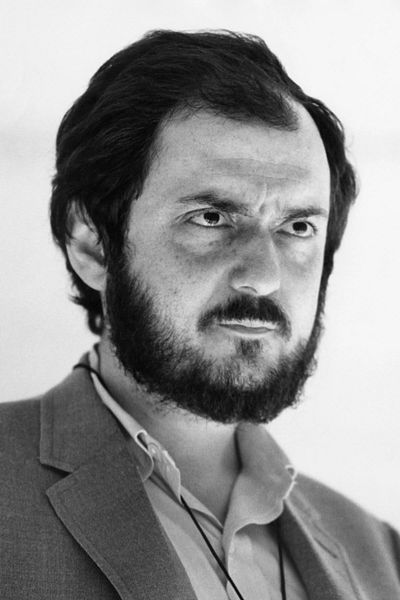There are films, and then there are Stanley Kubrick films.
His work spanned almost fifty years and yet, his output only numbered thirteen completed films. There were, however, a number of unrealised works - one of which, A.I.: Artificial Intelligence, was completed by Steven Spielberg. Today, Stanley Kubrick would have been 89. Sadly, he passed away shortly after the release of Eyes Wide Shut at the age of 70.
Here's five of his best scenes.
5. DR. STRANGELOVE, OR HOW I LEARNED TO STOP WORRYING AND LOVE THE BOMB - "I'd hate to have decide who stays up and who goes down."
Although the Cold War has passed and nuclear warfare is a thing of the past, Dr. Strangelove is still worth watching for a number of reasons. Peter Sellers' performance, for one. Playing three roles - the titular Dr. Strangelove, Group Captain Mandrake and President Muffley - Sellers gives his most well-known performance and ran away with the film entirely. After a rogue US Army General sends a plane with a nuclear bomb to Russia with orders to destroy the Kremlin, the US President and his staff, made up of army officers, political advisers and an ex-Nazi scientist lock themselves away in the War Room in an attempt to call off the bombers and halt the nuclear apocalypse. It's all incredibly tense stuff on paper, but Kubrick approached the nuclear arms race in a way nobody would have ever dared to - with a black comedy. Kubrick tricked certain cast members - namely George C. Scott - into thinking the film wasn't a comedy by using early rehearsal takes as the ones that made it into the film. In this scene, Strangelove explains that the human race may possibly survive after the apocalypse by means of repopulation.
4. PATHS OF GLORY - The trench walk
This five-minute scene from one of Kubrick's earliest films is often quoted as popularising the tracking shot in modern film. It's a simple scene with little or no dialogue, except for the deafening explosions heard from the trenches above. Kirk Douglas is a French colonel in World War I who, together with his troops, are ordered to 'go over' the trench and attack a German position. Douglas' character knows that it's a suicide mission but goes ahead with it as he has ordered to do so by his superior officer. The attack, of course, fails and many of his men die needlessly. The few men who do survive are then court-martialed for cowardice as an example to other soldiers in the field. Of all things, HBO's The Wire was influenced by Paths of Glory due to its theme of the ordinary man being caught and sacrificed for other's ambitions.
3. A CLOCKWORK ORANGE - The Ludovico Technique
There have been few films as controversial as A Clockwork Orange. The film was banned here in Ireland and was never shown in a cinema until 2000, twenty-nine years after it was initially released. Malcolm McDowell's performace as Alex DeLarge, a psychotic teenage criminal whose hobbies include Beethoven, drug-laced milk and ultraviolence. After an attempted home invasion goes wrong and finds DeLarge captured by the police, he's then subjected to an experimental procedure known as the Ludovico Technique. Strapped to a chair and his eyes forcibly opened, he's made to watch scenes of violence all whilst his favourite music - Beethoven - is played over and over again. Like Dr. Strangelove, it's a satire about correctional psychology, police control and the failures of society to stem anarchy.

2. FULL METAL JACKET - 'You got a warface?'
Trivia time! R. Lee Ermey was offered the role of Gunnery Sgt. Hartmann after he managed to insult a film crew member for fifteen minutes straight whilst having random objects thrown at him. R. Lee Ermey not only insulted the man for a quarter of an hour without a stop, he also managed to do so using completely new insults each and every time. That's a talent. The scene has lampooned, parodied and copied endlessly in various films and TV shows - always in a more toned-down fashion. Here's the pure, distilled version.
1. 2001: A SPACE ODYSSEY - 'I'm afraid, Dave.'
2001: A Space Odyssey topped our 10 Sci-Fi Films You Need To See Before You Die list and, for our money, it's Stanley Kubrick's crowning achievement. It not only revolutionised science-fiction films, it's changed how we approach computers and technology in our own lives. Up until this film, technology was seen as a force for good and that it could never do evil against man. Here, instead, the supercomputer HAL is shown as not only having a personality, but having a mind of its own. A mind which, as the film progresses, slowly breaks under pressure. In this scene, the lone surviving astronaut Dave Bowman (Keir Dullea) shuts down HAL. The placid, eerily calm HAL pleads with Dave to spare him, saying with creepy politeness 'My mind is going... I can feel it.'















































































